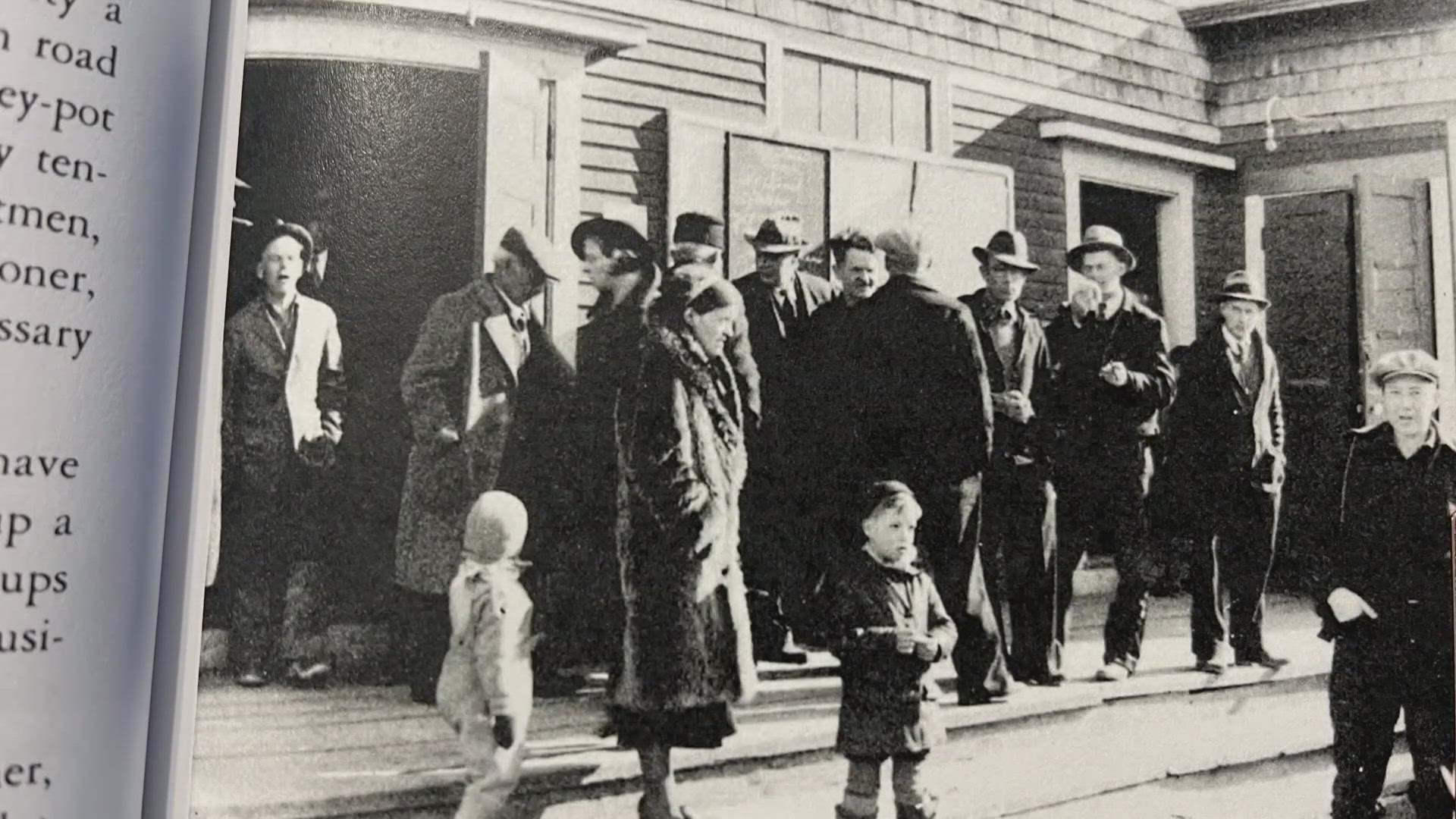HARPSWELL, Maine — As a town, and for Maine at least, Harpswell has some age to it.
Incorporated as a town in 1775, Harpswell was settled long before that. The Meeting House in Harpswell Center was built in 1757, 18 years before the American Revolution began in Massachusetts, which at that time included all of Maine.
David Hackett, president of the Harpswell Historical Society, said one of the first printed copies of the Declaration of Independence was read aloud in the Meeting House in 1776.
"I don’t know when the copy of the Declaration of Independence appeared here, but I believe it was read from the pulpit right here," Hackett explained from below the tall pulpit, which was a common feature of early meeting houses.
That meeting house played a key role in town for generations. Even after religious service moved to a church, the rough wooden building became home to the town’s office and the site of Harpswell’s annual town meeting.
That’s one reason the Harpswell Historical Society decided to re-publish a 1940 book by Maine author John Gould, "The New England Town Meeting-Safeguard of Democracy."
The book features numerous photos of old-time town meetings in Harpswell and is a tribute to those rituals of self-government that used to happen all across New England.
"Given the times we live in right now, this book seems very appropriate," Hackett explained. "There is so much…discord in our country now that it seems a good time to step back and think about what it was like here 80 some years ago."
Author John Gould knew those meetings well. His teen years were spent on a farm in Freeport, and he began writing for the Brunswick newspaper while still in high school. He eventually became a full-time reporter for that paper and later the newspaper in nearby Lisbon. A keen observer of local people and collector of stories, as well as characters, Gould went on to write some two dozen books about life in Maine.
For decades he was a regular columnist for "The Christian Science Monitor," where his writing style with keen insights won him a loyal following.
One of his first books, if not the first, was "New England Town Meeting," written in 1939 when Germany invaded Poland to ignite World War II, Hackett said.
"And it speaks of democracy at its best, the one person, one vote. A majority shall rule, no question about that. That’s what it means to me," he added.
The book also reflects a different time in Maine and the nation; when town meetings were as much a social event as a time of local business.
"The whole family comes, mother and father to vote, and the children to listen and learn how," Gould’s narrative explains. "Town meeting day begins after chores, and sometimes the moderator is chosen as early as 6:30. Events move on, with balloting in the forenoon, dinner, appropriations in the afternoon, supper at six, and a town meeting dance at night."
That image of neighbors coming together to debate and vote, then sit down to eat and eventually dance, is one that Hackett noted, is from a different time.
However, he believes the core of the book is people being willing to do that without animosity toward each other—an attitude that seems uncommon today.
"And I’ve seen my father, plain as day right in somebody’s face like this," he said, pointing a finger. "'This is what I believe and this is why!' And the other guy saying, ‘Oh, well, this is what I believe!' By the time it would get to the end, I would think ‘Are they gonna get into a fist fight?’ And [instead] they would shake hands and say 'I really enjoyed talking to you.'"
That willingness to argue and remain friends, along with the true democracy and openness of town meetings, is what Hackett said makes the book still worth reading, even 84 years later.
This is why the Historical Society has republished Gould’s book, which went out of print years ago. The books are now available at Gulf of Maine Books in Brunswick and at Island Candies on Orr's Island in Harpswell.
"New England town meeting continues to function as a basic form of democratic government," Hackett read from the book, “It will continue to serve as long as there is a predominance of Yankee determination, native or acquired, to hold fast to the precept that there are two sides to every question and the majority shall rule."

